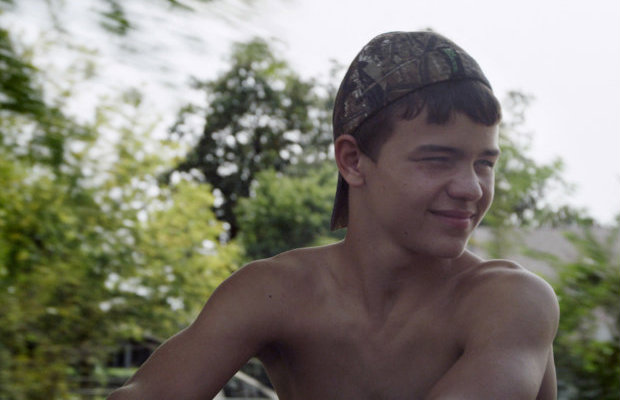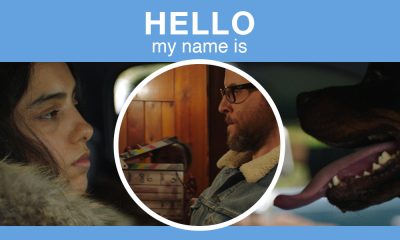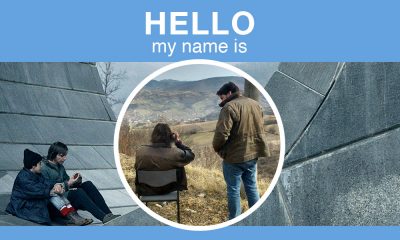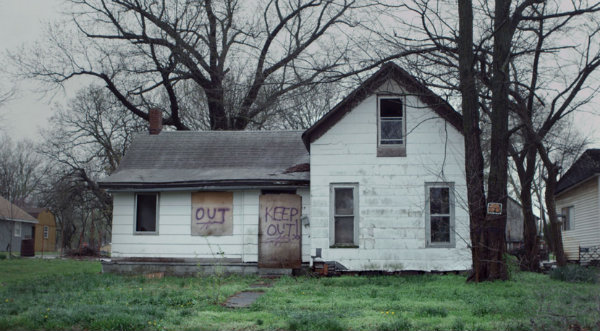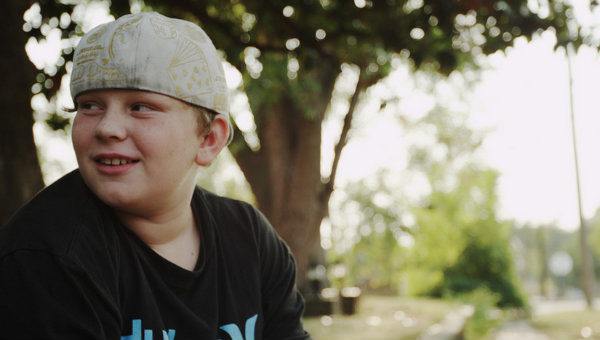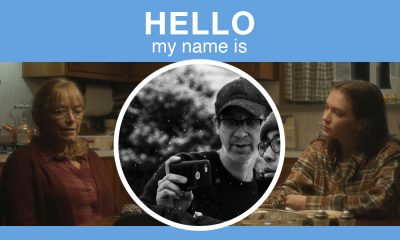IONCINEPHILE of the Month
IONCINEPHILE of the Month: Andrew Droz Palermo
IONCINEMA.com’s IONCINEPHILE of the Month feature focuses on an emerging filmmaker from the world of cinema. For those keeping tabs on emerging indie talents, you’d find our month’s featured personality listed as the cinematographer on Adam Wingard’s You’re Next, Hannah Fidell’s A Teacher, and Kat Candler’s short, Black Metal, but it’s his “radiant observational piece” smack-dab in a don’t blink or you’ll miss it community in middle America that Andrew Droz Palermo decided would be the subject of his first full length docu feature. Co-signed with cousin Tracy Droz Tragos, the U. S. Grand Jury Prize: Documentary winning Rich Hill will be released by The Orchard distrib folks on August 1st in New York City (check the listings). Here’s our profile on Andrew, and make sure to click on over to his Top Ten Films of All Time list (as of August 2014).
Background:
Eric Lavallee: During your childhood…what films were important to you?
Andrew Droz Palermo: As a child, I was mainly interested in action movies. I used to watch “Predator” nearly every day with my bud Lance. We’d flex like Arnold and run around in the woods like wild people. Robocop, Batman, Teenage Mutant Ninja Turtles, lots of pop stuff. My very first crush in life was Kim Basinger in Batman. I had a card with her photo in a white dress that I’d carry around in my back pocket.
Lavallee: Up to this point you’ve worked mostly has a cinematographer for the likes of Adam Wingard, Hannah Fidell and Kat Candler. At what point did you know you wanted to become a filmmaker?
Palermo: I wanted to be many different things growing up, but most occupations were within the arts. One of my main pastimes as a kid was to draw from comic books. I could do it for hours. I loved drawing. I think after seeing some independent films in early middle school like “Chuck and Buck” and “Reservoir Dogs” I started to think filmmaking was really interesting. I can remember telling my best friend at the time that I wanted to be a director. I don’t think I knew at all what that meant, but I started watching movies more studiously around that time. Somewhere around late high school I got scared that I’d never make a living as a filmmaker, so I started exploring graphic design, which was another passion of mine. I ended up studying it in college as well, but ultimately found myself back in filmmaking after school.
I started making a documentary about the band White Rabbits, I toured off and on with them over a few years, and filmed them writing and recording their second album. Much of the film was about the monotony and repetition of life on the road. I learned a lot by shooting stills and video every single day for quite a while. That film ultimately got canned when my apartment in Brooklyn was robbed. It was a crushing blow. So I moved back to Missouri and made a music video for the band called “Percussion Gun.” I really found my footing through that process, and was able to get over the horrors of losing everything. I was really proud of what I was able to do, and felt like I could keep doing it. Basically that’s a long winded way of saying that I learned by doing, and didn’t have a formal education outside of studying art and art history.
Feature Film:
Lavallee: Could you underline how the idea first came about, and the lineage between the town you feature and your own family.
Palermo: “Rich Hill” started while idling on the curb at LAX. I was staying with my cousin in LA while I was coloring “You’re Next” and she was dropping me off on my flight back to Missouri. I mentioned that I had wanted to make something there, but I didn’t really know what it might be. Tracy was coming off an extended break to raise children, and thought it’d be a great project for her to get back into work. Our parents grew up there, and we both loved visiting our grandparents over the years, but it was always evident to us that the town, and its people were struggling. So I flew back out to LA a few months later so we could talk, get to know each other better, and fully hatch a plan.
Lavallee: How were the writing and directing duties split? And how did you first engage with your characters? Did you and Tracy build different rapports with each subject?
Palermo: We split duties pretty fluidly. It was never formally discussed, but we fell into roles fairly quickly. I always shot, and would occasionally ask questions, but largely she ran all the interviews. We’d try to react to what was happening before us – if it felt like moments that were interesting, we’d step out of the way and play it in a fly-on-a-wall manner. Other times, we’d really sit people down, and check-in to see how they were feeling, what they were hoping for, and what all had transpired since we had seen them last. Coming from two very different perspectives was really helpful with the kids, and the parents. I think that was incredibly valuable for us.
Lavallee: You employ a very intimate, mostly shallow depth of field aesthetic for the majority of the film, what was the decision behind that and what ideas did you have for the look & style of the film?
As for the look and style, I knew I wanted it to be beautiful and to reflect the raw, natural look of my childhood. I wanted it to be artful, and lean more towards the visual style of narratives than of documentaries. This extended into the treatment of the kids, as much as humanly possible – I was on the ground shooting up and wide at them – trying to make them look larger than life, like heroes.
Lavallee: Could you discuss your collaboration with Jim Hession…
Palermo: Our editor was our first real collaborator. It was a crucial relationship. Tracy and I were cutting for about 5 months before he came on board. We had about 4 hours of edited scenes, but we always knew we wanted someone to help us. So we cast a pretty wide net and talked to a lot of people. Tracy dug him up after seeing that he was a Karen Schmeer fellow. Then we both loved his work in “Marina Abramovic: The Artist Is Present.” We actually never met in person before the Sundance Labs. We mainly worked from Skype or Google Hangouts. It worked better than you might think. Jim is an incredibly patient guy, and so sympathetic. He had a real love for our film, and just “got it.” He really saw the poetry we were going for. As a shooter, I can’t thank him enough for how much he let the footage do the speaking, and not bog it down with information.
Lavallee: Could you discuss your collaboration with composer Nathan Halpern…
Palermo: Nathan came on pretty late, but did an amazing job. We had a bit of temp track love, but he broke us of it pretty quickly. He really challenged us to look at each moment we wanted music and justify it. He kept urging us to let the music get out of the way of the content, but at the same time wasn’t afraid to come in big and beautiful.
Lavallee: Could you discuss your collaboration with Sound Designer Pete Horner…
Palermo: Pete is my spirit animal. I fell in love with our film again while working with him at Skywalker. I really hate working with people who are really focused on numbers and technical stuff, and he’s was never that. It was always about feeling, and mood, nothing technical. We’d take some long walks and he’d tell me about his early days at Zoetrope, or sound theory, or something else entirely random. He’s going to be doing a lot of big films over the next few years, but I hope he’ll continue to slum it with me, because I really think we jive on what sound can mean for movies. I really like to edit with pretty solid sound design, and think about it a lot when I write. It’s a collaboration that we both agree shouldn’t wait until the very final moments of a movie.
Eric Lavallée is the founder, CEO, editor-in-chief, film journalist and critic at IONCINEMA.com (founded in 2000). Eric is a regular at Sundance, Cannes and TIFF. He has a BFA in Film Studies at the Mel Hoppenheim School of Cinema. In 2013 he served as a Narrative Competition Jury Member at the SXSW Film Festival. He was an associate producer on Mark Jackson's This Teacher (2018 LA Film Festival, 2018 BFI London). In 2022 he served as a New Flesh Comp for Best First Feature at the 2022 Fantasia Intl. Film Festival. Current top films for 2022 include Tár (Todd Field), All That Breathes (Shaunak Sen), Aftersun (Charlotte Wells).



